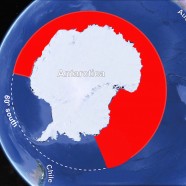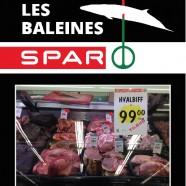IWC comes to the aid of whales
Press release n°3
66th IWC – International Whaling Commission
Portoroz – Slovenia
24-28 october 2016
3 positive resolutions adopted by vote :
1 – Resolution on Cetaceans and their Contribution to Ecosystem Functioning submitted by Chile, Argentina, Brazil, Costa Rica, Dominican Republic, Mexico and Uruguay.
At last, whales are no more considered as absolute predators and competitors with fishing activities. The resolution instructs the IWC Scientific Committee to include in its works services rendered by alive and dead cetaceans. This is a satisfaction and a success for Robin des Bois who has been working on this issue since 2010.
The South Atlantic sanctuary lost in the Political Ocean
Press release n°2
66th IWC – International Whaling Commission
Portoroz – Slovenia
24-28 october 2016
Hope of seeing the international community declare the South Atlantic Ocean to be a domain where whales and sperm whales are protected from pollutions, collisions, industrial fishing and acoustic chaos is sinking in the quick sand of political alliances.
The South Atlantic represents slightly more than 10% of the world ocean. It is home or harbors temporarily according to migration periods 51 cetacean species, including blue whales, fin whales, Minke whales, Antarctic Minke whales, southern right whales, humpback whales and sperm whales.
IWC – International Whaling Commission, Portoroz – Press release n° 1
Press release n° 1 – Opening
66th International Whaling Commission
Portoroz – Slovenia
24-28 October 2016
Opening
On the table of the 88 Member States, no whale meat, but several important topics for their future, the future of the order Cetacea and of the Commission itself.
Sanctuary
Sanctuaries are geographically defined areas in the world ocean where commercial whaling is prohibited and will remain even if the commercial whaling suspension entered into force in 1986 was eventually to be lifted. The Indian Ocean sanctuary was established in 1979 on a proposal of the Seychelles. The Southern Ocean (Antarctic) sanctuary was adopted in 1994. However, given the current state of the IWC founding text , some Member-States may lead scientific whaling with lethal methods in contradiction with the ethics and purpose of the sanctuary.
Corrida in Antarctica
Unfortunately the truce is over. The Japanese matadors wearing again their glaucous muletas and fitted with their scientific spears are going for the whales from December 2015 to March 2016, the austral summer. The hunting permit granted by the Minister of Fisheries, Hiroshi Moriyama, authorizes explosive harpoons and if necessary cold harpoons and rifles. Depending on sea conditions, visibility, shooting distance and the first affected organs, the 3 ammunitions are useful and are compatible. One explosive harpoon shot is made. Residues of penthrite (PETN) and overpressure of the explosive within the whale make inedible 300 to 500 kg of meat.
SPAR ACTION ALERT
The international convenience store chain SPAR is selling whale products in Norway and we need your help to urge it to stop.
Let SPAR know how unacceptable it is to be making money from the slaughter of whales by sending an email to:










